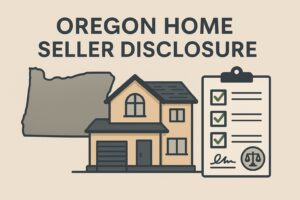This is the second post in Harris Sliwoski’s online series where Shannon Brandao will guide you through the practical, legal and personal considerations of purchasing a home in Europe.
See the first post here: Where can YOU buy a home in Europe? Well, that depends . . .
In the first post of this series, we discussed how flexible immigration policies are making property investments in Europe increasingly attractive to Americans.
We also briefly touched upon the complexities of buying real estate in Europe as an outsider, and the risks of relying on “free” social media advice.
In this post, we’re going to take a closer look at the personal questions you should ask yourself as you consider purchasing a European home.
Budgeting for a move abroad can be tricky. So we’ll begin by discussing a few of the costs that should be considered as you decide where you want to live in Europe. Then we’ll dive into why language, culture, and even politics can have an outsized influence on where in Europe you’ll want to call “home.”
Affordability: What are your cost expectations?
Many of Europe’s major cities are just as expensive to live in as their counterparts of equal size in the United States. If you’re looking to purchase a house instead of an apartment, the pickings are pretty slim. You can certainly get more for your money by living in the greater metro areas or suburbs, just like in the U.S. But if you do live further out, in most cases – yes, even in Europe, sorry – you will need a car.
My husband and I biked it for the first year that we lived in Belgium, but that got old fast. We felt limited in travel, even though Belgium is super bike-friendly and has thousands of kilometers in routes set aside for cyclists.
Still, it’s one thing to hit the trails each Saturday for a stunning ride into the Flemish countryside, but try loading a week’s worth of groceries – or packages larger than a shoebox – on the back of a bike regularly. It’s also easier to drive when you’re not feeling well or have an injury, and I can’t tell you how many times I’ve been caught in heavy rainstorms, still a 20-minute ride from my door.
In other words, there’s a reason most Europeans today, just like Americans, drive cars. Europe does have better public transportation than many places in the U.S. But better does not mean ubiquitous, and if you live in the city center where you don’t need a car, you will pay more – oftentimes, a lot more.
As an aside, my husband and I bought a car four years ago – we’ve lived in Europe for five and a half years – and every European I know has at least one car per family, except my mother-in-law who doesn’t drive for medical reasons. One American I know in Portugal just bought a car and another is currently shopping for one. They both moved to Portugal in 2023.
Other costs may be less of a concern. If you can adjust to eating mostly like the locals, then food in the supermarkets, for example, is relatively affordable. But if you must have certain American brands of something – expect to pay more if you can find it.
It’s not always the case, but more true than not. Finding famous American brands of OTC medicines is particularly challenging, so keep that in mind. By the way, I’m jonesing for my favorite allergy and cold medications, so if you’re heading to Portugal anytime soon …
Language: Can you communicate with locals?
If not, hit the books.
Not speaking a survival level of language will limit the number of places in Europe to which you can comfortably adapt. Bear in mind that English is not spoken as widely in Europe as you may think. Folks in the Netherlands, as a rule, speak excellent English, but that is only in the more expensive towns and cities. Locals working in tourist spots in nearly every EU country will be able to communicate in English, including in Portugal, where I live.
But if you want to live in a smaller, more authentic town or village or, even, outside the tourist zone – as I do in Porto – then you’ll want to know at least the basics in the local language to manage your daily needs.
This is not to say that you need to be fluent in the local tongue. Finishing a good beginners’ course with a live teacher, in person or online, will go a long way toward helping you adjust to your new surroundings. Your first course should be of solid quality, however, as it establishes the fundamentals on which you can later build. Online apps, like Duolingo, in my experience, are only minimally helpful.
You got this. Language learning is tedious, but if it’s causing second-thoughts about buying your dream home in Europe, it shouldn’t. Contact me and I’ll share some tips. Or, if there’s enough interest, I can turn them into a future post topic.
Cultural differences: Get ready for culture shock.
What?, you say. But my grandmother was from [insert Old World story here]!
No matter, unless you came of age in – as in attended school, worked, learned to be a good citizen, etc. etc. – in your new European country, there is going to be A LOT that you will, simply, not know.
So get nice and cozy with the feeling as if you’re always in the dark. Because you will be.
Unfortunately, there are also going to be plenty of times when something you don’t know will cause embarrassing misunderstandings.
This also happens in our native country. But for those who have chosen to move to a foreign place – it’s more frequent.
When you first arrive to settle in Europe, cultural and linguistic misunderstandings will probably occur everyday, since that’s when you will have the most interactions with local bureaucrats, school personnel, and utility providers.
Now imagine adding the hunt for a home to that confusion. You can expect cultural variances in marketing practices, negotiation styles, construction habits, ownership transfers and even the enforcement of legal standards.
A better strategy for international house hunting is to give yourself more time than you think you’ll need. You might even consider renting in-country for the first few months to soak up that all-important local knowledge and experience.
Politics: The grass isn’t always greener …
Current political tensions in America are not a global exception. Many regions around the world are also seeing volatile social movements, including in Europe, where there is a wave of right-wing extremism that may ultimately affect how welcoming some regions are to foreigners.
Recent elections in Portugal, where I live, for example, were a major coup for Chega, Portugal’s far right party. Chega – which means “enough” in Portuguese – is, either, loved or hated because of its uber-nationalistic policies that hearken back to the country’s brutal dictatorship, which lasted from 1933 to 1974, as well as its hostility to ethnic minorities.
It’s a similar story in Spain, France, the Netherlands, Belgium, Austria, Italy, Germany, Poland, Hungary, and Sweden. According to Statista, many European far-right parties share ideological positions on nationalism, social-conservatism and anti-immigration.
None of this is meant to put you off from finding your perfect home in Europe. But if you’re coming only to escape America’s “toxic” political climate, you’re likely to find similar tensions boiling to the surface here. Of course, you can hole up in an expat enclave and not watch local television or read local newspapers, and, maybe, be “so happy.” But you can do that without the added expense and headaches of leaving the good ole, familiar U.S.A.
Buying a home in Europe: Does any place have it all?
In other words, something other than a change in the political scene should drive your decision to make a long-term real estate investment in Europe.
But who couldn’t find a reason in the continent’s striking natural beauty – with its world-renowned mountain ranges, valleys and coastlines. Or maybe you’re a sucker for architectural treasures and you dream of happening upon a famous World War II battle site on your way home from sampling an authentic trappist beer brewed by the local monastery.
Europe is legendary. But what happens once you’ve made the leap from a tourist on holiday to a new home-owner with permanent residence and a weird 4-digit zip code? (Write it before the city, not after.)
In sum, if any one place in Europe has it all, you’re going to need to know what that means for YOU. It’s the part of your move that may be the most important. Skip it, and watch the stresses pile up as you struggle to adjust to your new environs. Facebook is awash with groups of immigrant – American and other – home owners complaining about buyer’s remorse.
The disclaimer, here, is that no move has to be forever and if things aren’t working out, you can – and should – go elsewhere. Visa options are changing all the time as governments across the continent compete for new injections of cash and talent.
But maybe with a bit more self-awareness and country-specific investigation, you can get it right on the first try.
I hope you’ll join me for the next installment of this Harris Sliwoski series in which we’ll review trends in European real estate. Feel free to contact me with individual questions or with an idea for a post that will help you plan the purchase of a home in Europe.

























